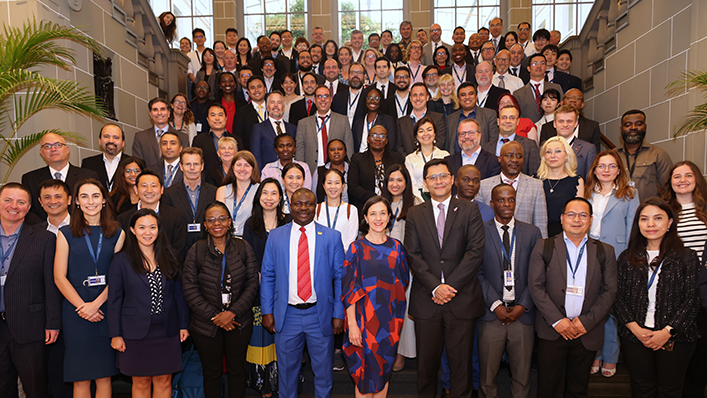
The MC12 SPS Declaration instructed the SPS Committee to launch a Work Programme to identify challenges in the implementation of the SPS Agreement, the mechanisms available to address them and the impact of emerging challenges on the application of the SPS Agreement. The Committee established five thematic groups to undertake this work.
As mandated in the Declaration, the Committee finalized the report in November 2023 with the intention of presenting it to ministers at the 13th WTO Ministerial Conference (MC13) earlier this year but some members requested more time to endorse it.
The report, prepared by the former Committee Chair acting as facilitator, Mr Tang-Kai Wang of Chinese Taipei, details key findings of the Work Programme and includes recommendations for the Committee moving forward. Key findings affirm the continued importance of the SPS Agreement for ensuring safe international trade in food, animal and plant products. Aligning SPS measures with international standards and scientific principles remains crucial, especially when confronting new challenges, the report finds.
A significant focus of the report is on promoting global food security and sustainable food systems. The Committee underscores the importance of sustainable agricultural growth and innovation in international trade. It calls for the use of international standards from bodies like the Codex Alimentarius Commission, the World Organisation for Animal Health (WOAH) and the International Plant Protection Convention (IPPC) to harmonize SPS measures and safeguard human, animal and plant health.
The necessity of basing SPS measures on scientific evidence is another critical point emphasized in the report. This is particularly important when international standards are either lacking or unsuitable. The report stresses the importance of guidance from international standard-setting bodies to manage scientific uncertainty during risk analysis.
To enhance safe international trade, the report highlights the need to adapt SPS measures to regional conditions. This includes recognizing areas that are free from specific pests or diseases, which is essential for facilitating safe trade and efforts to limit the spread of pests, such as the Mediterranean fruit fly, diseases such as African swine fever, disease-carrying organisms, or disease-causing organisms. Building capacity to align domestic regulatory frameworks with international guidance is also highlighted as a key need.
Ongoing cooperation with international bodies is deemed essential for addressing new challenges and opportunities. The report emphasizes the importance of providing technical assistance, capacity building, and fostering South-South cooperation to help developing economies comply with SPS requirements and expand their export opportunities. The role of the Standards and Trade Development Facility (STDF) in coordinating this assistance is crucial.
The Committee engaged with various stakeholders in the preparation of the report, including international standard-setting bodies, observer organizations, member authorities, agricultural producers, food manufacturers, traders and the STDF. These consultations allowed for exchanges on addressing new opportunities and challenges in international trade, such as the growing global population, technological advances, climate change, sustainable agricultural practices and the proliferation of pests and diseases.
The SPS Committee recommends continuing targeted discussions on implementing the SPS Agreement in light of emerging challenges. This includes the Sixth Review of the Operation and Implementation of the SPS Agreement and specific thematic sessions.
Share
Reach us to explore global export and import deals